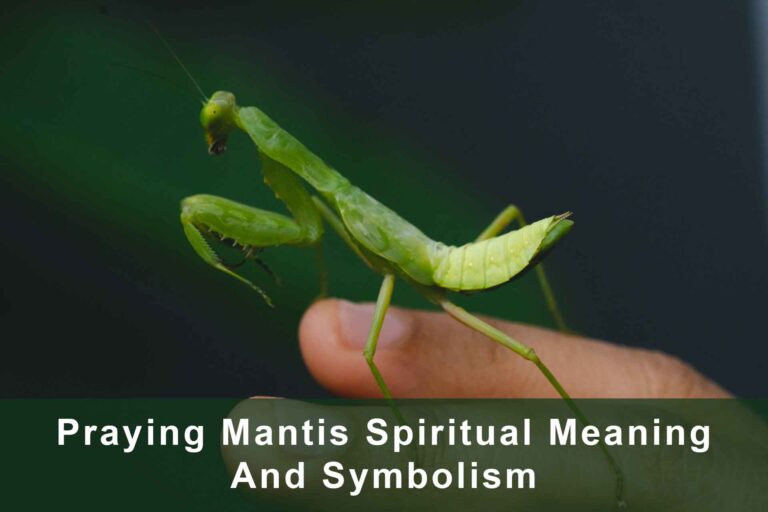Have you ever wondered about the spiritual meanings behind vertigo? That puzzling sensation often leaves us feeling dizzy and disoriented.
Vertigo, more than just a physical ailment, holds deep spiritual significance. It points to energetic shifts, heightened intuition, and psychic abilities, offering a transformative journey of inner exploration and enlightenment.
Join us as we delve into the depths of Vertigo spiritual interpretations, uncovering the path to inner harmony and spiritual awakening.
| Spiritual Meaning | Summary |
|---|---|
| 1. Spiritual Imbalance and Awakening | Vertigo acts as a spiritual alarm, indicating a shift in consciousness and prompting inner exploration for harmony and enlightenment. |
| 2. Energetic Shifts and Vibrational Changes | Vertigo signifies disruptions in spiritual energy flow, alleviated through techniques like Reiki, harmonizing vibrations and fostering spiritual well-being. |
| 3. Heightened Intuition and Psychic Abilities | Linked to the opening of the third eye chakra, vertigo prompts exploration of intuitive capabilities, leading to profound spiritual insights. |
| 4. Letting Go of Ego and Surrender | Vertigo teaches surrender, emphasizing acceptance and letting go amidst chaos, facilitated by spiritual practices and meditation. |
| 5. Spiritual Ascension and Higher Consciousness | Symbolizing spiritual ascension, vertigo signifies elevation to higher planes of awareness, attained through practices like yoga and breathwork, leading to enlightenment and self-realization. |
Understanding the Spiritual Significance
1. Spiritual Imbalance and Awakening
Vertigo, as experienced on a spiritual level, signifies more than just a physical ailment; it points to a deeper spiritual awakening. It serves as a metaphorical alarm, indicating a shift in consciousness and an imbalance in spiritual energies.
This inner disruption acts as a catalyst, prompting individuals to explore their inner selves in search of harmony and enlightenment.
It’s a call from the universe to delve into the depths of one’s being, understand the underlying spiritual imbalances, and embark on a transformative journey towards wholeness.
2. Energetic Shifts and Vibrational Changes
The sensation of vertigo often correlates with energetic shifts within the body. These shifts manifest as disruptions in the spiritual energy flow, causing imbalances that lead to physical sensations like dizziness.
Practicing energy healing techniques, such as Reiki, can be immensely beneficial. By channeling and aligning spiritual energies, individuals can harmonize their vibrations, easing the sensations associated with vertigo.
This alignment not only addresses the physical symptoms but also fosters a sense of spiritual well-being and balance.
3. Heightened Intuition and Psychic Abilities
Vertigo is intricately linked to the opening of the third eye chakra, a center associated with intuition and psychic abilities. The dizziness experienced during vertigo episodes can be seen as a sign of this chakra awakening.
Meditation and mindfulness practices play a pivotal role in embracing these heightened senses. Through focused meditation, individuals can explore their inner intuitive capabilities, allowing them to harness their spiritual gifts.
This newfound awareness often leads to profound insights and spiritual revelations, enriching the individual’s spiritual journey.
4. Letting Go of Ego and Surrender
Vertigo teaches a crucial spiritual lesson – the art of surrender. The sensation of losing balance signifies the necessity of surrendering to the divine flow of life.
It emphasizes the importance of acceptance and letting go, even amidst the chaos and uncertainty. Spiritual practices, combined with meditation, enable individuals to release ego-driven desires and attachments.
Through this process of surrender, they learn to trust in the spiritual journey, finding peace and serenity amid life’s challenges.
Vertigo becomes a guiding force, urging individuals to release control and embrace the profound wisdom found in surrendering to the cosmic rhythm.
5. Spiritual Ascension and Higher Consciousness
In spiritual realms, vertigo is often considered a sign of spiritual ascension—a significant leap in one’s spiritual journey. It signifies the elevation of consciousness to higher planes of awareness.
Engaging in spiritual practices such as yoga and breathwork becomes essential during this phase. These practices facilitate the expansion of consciousness, allowing individuals to connect with their higher selves and the divine.
As they ascend spiritually, they gain access to deeper levels of understanding, leading them towards enlightenment and self-realization.
Vertigo, in this context, becomes a symbol of the soul’s ascent, a testament to the evolving consciousness and the unfolding spiritual path.

Practical Approaches to Spiritual Balance: Managing Vertigo Symptoms
1. Grounding and Centering Techniques
Grounding exercises form the cornerstone of spiritual stability. Engaging in practices such as walking barefoot on grass, sitting under a sturdy tree, or embracing grounding meditations establishes a profound connection with the earth’s energy.
This grounding anchor not only provides stability during vertigo episodes but also fosters a deep sense of mindfulness.
Through these practices, individuals can reclaim control over their thoughts and emotions, allowing them to face vertigo’s challenges with resilience and calm.
2. Energy Healing and Rebalancing
Seeking guidance from experienced energy healers specializing in chakra balancing is a transformative step. Energy healing sessions delve into the root causes of imbalance, promoting a harmonious flow of energy within the body.
By addressing both the physical and spiritual aspects of vertigo, these healing techniques offer holistic relief. The result is a reduction in vertigo symptoms and the nurturing of inner equilibrium.
This balance is crucial for spiritual well-being, allowing individuals to navigate the complexities of vertigo with grace and self-assurance.
3. Mindfulness and Acceptance Practices
Embracing mindfulness-based stress reduction techniques can significantly impact one’s ability to cope with vertigo. Mindful breathing exercises and body scan meditations cultivate a deep sense of present-moment awareness.
Through mindfulness, individuals can embrace the sensations and emotions that arise during vertigo episodes without judgment. Acceptance becomes a powerful tool, reducing resistance and fostering inner peace amidst the whirlwind of vertigo.
By integrating mindfulness into daily life, individuals enhance their resilience, enabling them to face vertigo challenges with grace and composure.
4. Holistic Wellness Approaches
Adopting a holistic approach to wellness is essential for maintaining spiritual balance, especially during vertigo episodes. This approach encompasses balanced nutrition, regular exercise, and sufficient sleep.
Nutrient-rich foods provide the body with essential vitamins and minerals, nurturing physical health and vitality. Engaging in regular physical activity not only promotes cardiovascular health but also triggers the release of endorphins, the body’s natural stress relievers.
Quality sleep is fundamental for the body’s healing and regeneration, ensuring individuals wake up refreshed and energized.
When the body is well-nourished, active, and adequately rested, the mind and spirit experience profound balance. This holistic synergy strengthens the body-mind-spirit connection, fostering spiritual resilience and stability even amidst vertigo challenges.

False Beliefs Surrounding Vertigo: Dispelling Myths and Misconceptions
1. Karmic Punishment
Some individuals believe that experiencing vertigo is a karmic punishment for past wrongdoings.
Vertigo, like any other health condition, is a physiological phenomenon and not a form of punishment. Spirituality teaches compassion and understanding, emphasizing the importance of supporting individuals facing health challenges rather than assigning blame.
2. Negative Spiritual Energy
There is a misconception that malevolent forces or negative spiritual energy are the cause of vertigo.
Vertigo can have various medical causes, such as inner ear issues or neurological disorders. Associating it solely with negative spiritual energy oversimplifies the complexity of health conditions and may deter individuals from seeking appropriate medical help.
3. Lack of Spiritual Connection
Some believe that individuals experiencing vertigo lack spiritual connection or are spiritually unbalanced.
Spiritual growth is a personal journey and varies for each individual. Experiencing health challenges like vertigo doesn’t indicate a lack of spirituality. Spirituality teaches empathy and understanding, encouraging supportive attitudes towards those facing health issues.
4. Solely Energetic Imbalance
There is a notion that vertigo is solely the result of energetic imbalances and is only treatable by spiritual practices.
While spiritual practices can complement medical treatments, vertigo often has diverse causes, including inner ear disorders, migraines, or vestibular issues. A holistic approach, considering both medical and spiritual aspects, can provide comprehensive support.
5. Incurable or Irreversible
Vertigo is sometimes considered incurable or irreversible, leading to feelings of hopelessness.
Many cases of vertigo are treatable or manageable with appropriate medical interventions, lifestyle changes, and therapy. Seeking medical advice and exploring holistic approaches can significantly improve the quality of life for individuals experiencing vertigo.
6. Spiritual Superiority
Some claim that those with profound spiritual connections are immune to physical ailments like vertigo.
Spirituality doesn’t exempt anyone from experiencing health challenges. Illness and health are part of the human experience, regardless of one’s spiritual beliefs or practices. Compassion and understanding are essential when supporting individuals facing health issues.
Scientific Understanding of Vertigo
Vertigo, characterized by dizziness and imbalance, primarily stems from inner ear disorders like BPPV and Meniere’s disease, disrupting the vestibular system’s function.
Neurological factors, such as vestibular migraines, also contribute, affecting sensory processing in the brain. These disturbances result in sensations of dizziness and disorientation.
Physical therapy and medications are examples of medical interventions that target these physiological and neurological causes. This shows how important it is to find precise treatments that address both parts.
Understanding these scientific factors is crucial for effective management and treatment strategies, ensuring comprehensive care for individuals experiencing vertigo.
Conclusion
In the labyrinth of vertigo, we discover profound spiritual teachings. It urges us to embrace the dance of imbalance and balance, leading us towards self-discovery and enlightenment.
Vertigo becomes a metaphor for life’s unpredictable nature, urging us to trust the divine flow and find stability within the instability.
By recognizing its spiritual meanings and combining them with practical methods, we can turn vertigo from a feeling into a spiritual guide that shows us the way to inner peace and spiritual awakening.







